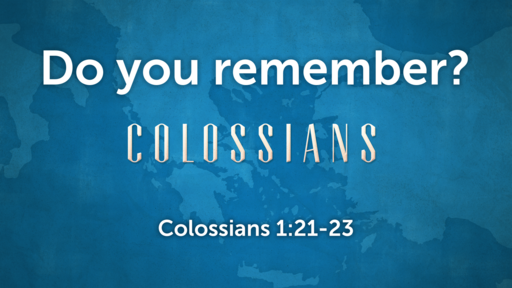Do You Remember?

Once you were alienated
Once you were enemies
Enemies in your minds as seen in evil behavior
But now He has reconciled
By Christ’s physical body through death
To present you...
To present you Holy in his sight...
… without blemish
…and free from accusation
Luther used a simple analogy to explain it. He described the condition of a patient who was mortally ill. The doctor proclaimed that he had medicine that would surely cure the man. The instant the medicine was administered, the doctor declared that the patient was well. At that instant the patient was still sick, but as soon as the medicine passed his lips and entered his body the patient began to get well. So it is with our reconciliation and justification. As soon as we truly believe, that very instant we start to get better; the process of becoming pure and holy is underway and its future completion is certain.
If...
If you continue in your faith
If you continue in your faith
If the gospel teaches the final perseverance of the saints, it teaches at the same time that the saints are those who finally persevere—in Christ. Continuance is the test of reality.
